New York City Grand Opening — Speaker Bios
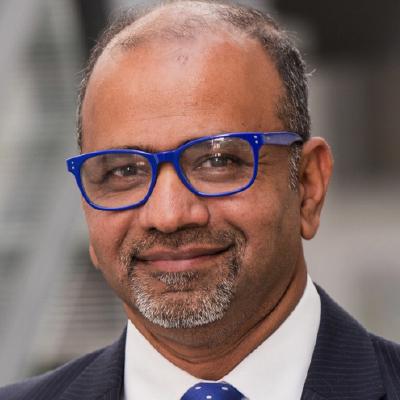
Deepak Vashishth, Ph.D.
Director, Center for Biotechnology and Interdisciplinary Studies, Rensselaer Polytechnic Institute; Yamada Corporation Professor; Associate Director, Center for Engineering and Precision Medicine
As Director of the Rensselaer Polytechnic Institute Center for Biotechnology & Interdisciplinary Studies (CBIS), conducting breakthrough research on bones, Deepak Vashishth, Ph.D., is working to redefine the role of a top-tier research university: one that is engaged in public and private partnerships, involved in interdisciplinary research, and providing quality education, all to drive entrepreneurial, sustainable, socially responsible scientific discovery and technological innovation. Administrative leadership: Through his work as a university center director, previously as a School of Engineering Department head, and in professional societies, he has successfully developed partnerships, programs, and platforms, to drive translational scientific research across disciplines, sectors, and geographic boundaries.
Dr. Vashishth’s research focuses on biomolecular science and engineering of extracellular matrix with particular emphasis on diagnosis and treatment of osteoporosis and bone tissue engineering. His collaborative, interdisciplinary bone research is redefining how osteoporosis will be diagnosed and treated. In 2012 he was elected Fellow of the American Institute of Medical and Biological Engineering (AIMBE) for contributions to the understanding of how both age and collagen‐modification affect bone fragility (cited over 1000 times). He has opened new avenues for diagnosing and treating osteoporosis by developing a new technique to identify bone proteome from nanoscale samples. Professor Vashishth and his research group have published over 200 peer-reviewed journal publications and conference proceedings in top journals including PNAS, Molecular and Cellular Proteomics, Plos One, and others. Working in collaboration with others, his research group has identified new structural roles for bone proteins and developed new biomimickry-based strategies for tissue engineering scaffolds.
In addition to being a Fellow of and active in the AIMB.E, he serves as a member of the National Institutes of Health study section on Skeletal Biology and Skeletal Regeneration and in multiple scientific boards and societies. He earned his B. Eng with honors from Malaviya National Institute of Technology (India), M.S. from West Virginia University (USA), and Ph.D. from the University of London (UK).
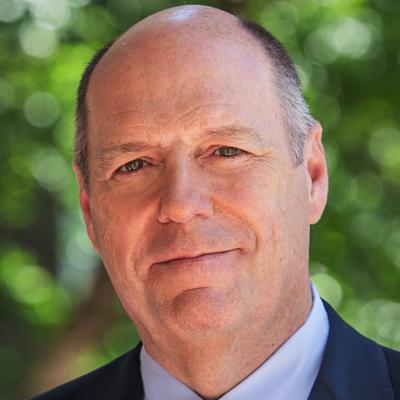
Martin A. Schmidt '81, Ph.D.
President, Rensselaer Polytechnic Institute
Dr. Martin A. Schmidt '81, an accomplished administrative leader, researcher, and entrepreneur who has earned more than 30 U.S. patents and founded or co-founded seven startups, was named 19th President of Rensselaer Polytechnic Institute (RPI) on July 1, 2022.
Prior to joining RPI, Dr. Schmidt served as the provost at the Massachusetts Institute of Technology (MIT) since 2014 and was also MIT's senior academic and budget officer. He was responsible for the Institute's educational programs, as well as the recruitment, promotion, and tenuring of faculty. As provost, he worked closely with MIT's deans to establish academic priorities, and with other members of the Institute's senior team to manage financial planning and research support. He also had oversight of MIT's international engagements.
Dr. Schmidt was a member of the Department of Electrical Engineering and Computer Science faculty since 1988, and served as director of MIT’s Microsystems Technology Laboratories from 1999 to 2006 and as associate provost from 2008 to 2013. He was also the Ray and Maria Stata Professor of Electrical Engineering and Computer Science, and is a fellow of the Institute of Electrical and Electronics Engineers (IEEE).
Dr. Schmidt earned his B.S degree in electrical engineering from RPI in 1981. He earned his S.M. in 1983 — largely for research conducted at Lincoln Laboratory — and his Ph.D. in 1988, both in electrical engineering and computer science (EECS) from MIT.
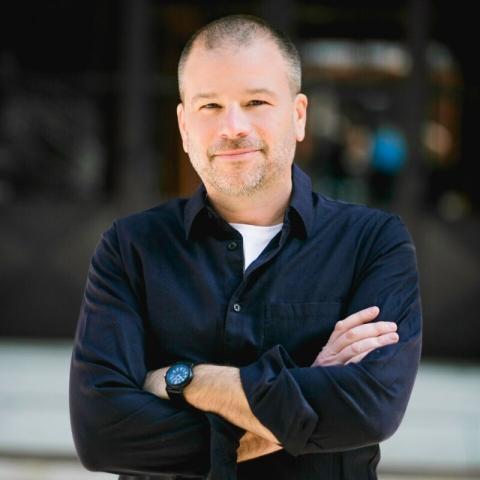
Andrew Kimball
President & CEO, New York City Economic Development Corporation
Andrew Kimball is President & CEO of New York City Economic Development Corporation, where he leads NYCEDC’s work growing an innovative and inclusive economy for all New Yorkers. Prior to his appointment in 2022, Andrew served as the CEO of Industry City, where he directed the transformation of the long-underutilized industrial facility in Sunset Park, Brooklyn. Under his leadership, Industry City invested over $450 million in infrastructure and place-making initiatives, and grew thousands of jobs and hundreds of businesses, ranging from startups to Fortune 500 companies.
Andrew previously served as President and CEO of the Brooklyn Navy Yard Development Corporation, overseeing the transformation of the 300-acre former Naval ship-building facility into a national model for the creation of innovation-economy jobs, sustainability, and community partnerships.
Prior to his time at the Navy Yard, Andrew served as director of operations for NYC2012, the privately funded bid to bring the 2012 Olympic Games to New York City, and as vice president of the New York Public Library.
Up until his appointment to NYCEDC, Andrew sat on numerous boards, including the Coro New York Leadership Center, where he served as chair; Prospect Park Alliance; Gowanus Canal Conservancy; Brooklyn Chamber of Commerce; Citizens Budget Commission; and the NYS Regional Economic Development Council.
He holds a bachelor’s degree from Hamilton College and is a graduate of the Coro Public Affairs Fellowship program. A life-long New Yorker, Andrew lives in Park Slope, Brooklyn with his wife, Sarah Williams, and two children.
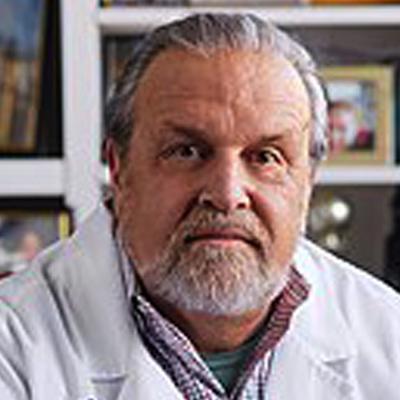
Dennis S. Charney, M.D.
Anne and Joel Ehrenkranz Dean, Icahn School of Medicine at Mount Sinai
President for Academic Affairs, Mount Sinai Health System
Dennis S. Charney, MD, is Anne and Joel Ehrenkranz Dean of the Icahn School of Medicine at Mount Sinai and President for Academic Affairs for the Mount Sinai Health System. He is a world-renowned expert in the neurobiology and treatment of mood and anxiety disorders who has made fundamental contributions to the understanding of human anxiety, fear, depression, and resilience, and has played a key role in the discovery of new treatments for mood and anxiety disorders.
Under Dr. Charney’s leadership, Icahn Mount Sinai has become one of the nation’s leading medical schools. He has recruited world-class faculty across the biomedical sciences, as well as in computational biology, information technology, and entrepreneurship to cultivate a supercharged, Silicon Valley-style atmosphere in an academic setting.
Icahn Mount Sinai is among the nation’s top recipients of National Institutes of Health (NIH) funding, reflecting the fact that Dr. Charney has hired faculty members who are both innovative, ambitious researchers and dedicated educators.
Dr. Charney has prioritized anti-racism initiatives. He established the Mount Sinai Institute for Health Equity Research, which is working to improve health and access to care across the nation’s demographic divide, and expanded Icahn Mount Sinai’s efforts to promote diversity and gender equity in medicine.
As the sole medical school partnering with the eight hospitals of the Mount Sinai Health System, the Icahn School of Medicine has one of the most expansive training and research footprints in the nation. Early in his tenure as Dean, Dr. Charney unveiled a strategic plan that laid the foundation for the more than two dozen research institutes that Mount Sinai is known for today.
Dr. Charney's career began in 1981 at Yale, where, within nine years, he rose from Assistant Professor to Professor of Psychiatry with tenure, a position he held for a decade. At Yale, he chaired the National Institute of Mental Health’s (NIMH) Board of Scientific Counselors, which advises the Institute's director on intramural research programs. In 2000, NIMH recruited Dr. Charney to lead its Mood and Anxiety Disorder Research Program and the Experimental Therapeutics and Pathophysiology Branch.
Dr. Charney’s own research on depression has led to new hypotheses regarding the mechanisms of antidepressant drugs and discovery of new and novel therapies for treatment resistant depression including lithium and ketamine.
Elected to the Institute of Medicine of the National Academy of Sciences in 2000, Dr. Charney has been honored with every major award in his field for his scientific research. Thomson Reuters named Dr. Charney one of the world’s most influential scientific minds in 2015. In 2016, Cybermetrics Lab named Dr. Charney one of the world’s most highly cited life science researchers; he stands as number 48 in a list of 1,360 researchers that appear most prominently in Google Scholar Citations. In 2017, the Cleveland Clinic identified Dr. Charney’s discovery of the use of ketamine for treatment-resistant depression as one of the top 10 medical innovations of the year.
A prolific author, Dr. Charney has written or co-authored more than 700 publications, including groundbreaking scientific papers, chapters, and books.

Eric L. Adams, M.P.A.
New York City Mayor
Mayor Eric Adams has served the people of New York City as an NYPD officer, State Senator, Brooklyn Borough President, and now as the 110th Mayor of the City of New York. He gave voice to a diverse coalition of working families in all five boroughs and is leading the fight to bring back New York City’s economy, reduce inequality, improve public safety, and build a stronger, healthier city that delivers for all New Yorkers.
In addition to continuing to fight for struggling New Yorkers and a better quality of life for all, Eric became a national leader on public health policy after learning he had developed Type 2 diabetes. Following his diagnosis, Eric completely changed his diet and his body, reversing the disease and launching a personal mission to educate New Yorkers about preventive care and wellness. His work has already led to successful proactive public health efforts across the city and increased education in schools and with high-risk populations in lower-income areas, partnering with civic organizations and health experts.
Eric is a lifelong New Yorker. He received his master’s degree in public administration from Marist College, and is a graduate of New York City Technical College and the John Jay College of Criminal Justice. He is also a proud product of New York City public schools, including Bayside High School in Queens. Today he lives in Bedford-Stuyvesant, where he has resided for over 20 years. Eric is the proud father of Jordan, an aspiring filmmaker and graduate of American University.
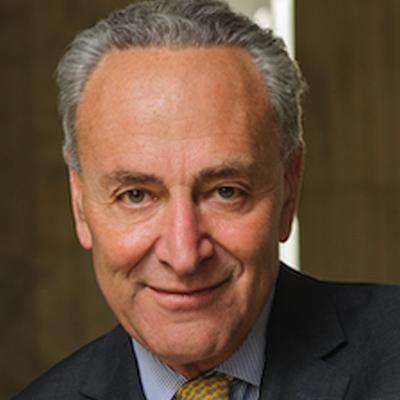
Charles Schumer, J.D.
Senator, New York State
Charles "Chuck" Schumer was born and raised in Brooklyn, New York. He attended public school and graduated from James Madison High School before heading to Harvard University, and then Harvard Law School. He has two daughters, and still resides in Brooklyn with his wife.
Throughout his time in the United States Senate, improving New York's economy has been his top priority. He has worked to successfully retain New York jobs that were at risk of leaving and to attract many new firms to New York to create many thousands of family-supporting new jobs. The Senator was the author of legislation that eliminated barriers that delay low-cost generic medications from entering the marketplace and led the charge to make college tuition tax deductible.
Since becoming the Senate Democratic Leader, he has shepherded numerous legislative victories through Congress, including historic levels of funding during the height of the COVID19 pandemic, the Bipartisan Infrastructure Law, the CHIPS and Science Act, and the Inflation Reduction Act.

Kirsten Gillibrand, J.D.
Senator, New York State
Since she was first elected to Congress in 2006, Kirsten Gillibrand has been a leader on some of the toughest fights in Washington. She wrote and passed the STOCK Act, led the effort to repeal "Don't Ask, Don't Tell," and passed the historic 9/11 health bill, which ensured first responders and survivors got the health care they deserved.
More recently, she helped pass provisions from her bill making gun trafficking a federal crime as part of the Bipartisan Safer Communities Act, and helped lead the fight to pass the PACT Act, which ensured veterans exposed to toxins during their service would get the care and benefits they earned. After a nearly decade-long fight against the epidemic of sexual assault in the military, she led the passage of critical reforms to the military justice system.
She is chair of the Senate Armed Services Subcommittee on Personnel, and also serves on the Senate Select Committee on Intelligence, Senate Agriculture Committee, and Senate Aging Committee.
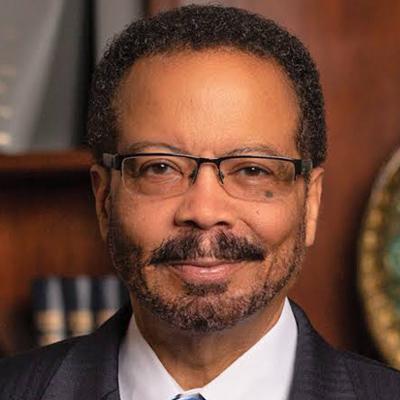
Roderic Pettigrew '73, Ph.D., M.D.
EnMed/Texas A&M
Rensselaer Polytechnic Institute Alumnus and Board Member
Roderic I. Pettigrew, Ph.D., M.D., serves as chief executive officer (CEO) of Engineering Health (EnHealth) and executive dean for Engineering Medicine (EnMed) at Texas A&M University, in partnership with Houston Methodist Hospital. Dr. Pettigrew also holds the endowed Robert A. Welch Chair in Medicine. EnHealth is the nation's first comprehensive educational program to fully integrate engineering into all health-related disciplines. EnMed is the nation's first four-year, fully integrated engineering and medical education curriculum leading to both an M.D. and master’s degree in engineering in four years.
An internationally recognized leader in biomedical imaging and bioengineering, Dr. Pettigrew served for 15 years as the founding director for the National Institute of Biomedical Imaging and Bioengineering (NIBIB) at National Institutes of Health (NIH). Prior to his appointment at the NIH, he joined Emory University School of Medicine as professor of radiology and medicine (cardiology) and Georgia Institute of Technology as professor of bioengineering. He is known for pioneering work in four-dimensional imaging of the cardiovascular system using magnetic resonance imaging (MRI).
Dr. Pettigrew has been elected to membership in the National Academy of Medicine, the National Academy of Engineering (NAE), the National Academy of Inventors, the American Academy of Arts and Sciences, and the National Academy of Sciences, India. His awards include gold medals from the Academy of Radiology Research and the Radiological Society of North America, the Arthur M. Bueche Award from the NAE, and the Vannevar Bush Award from the National Science Board.
He is a graduate of Morehouse College as a Merrill Scholar (B.S. in physics), Massachusetts Institute of Technology (MIT) as a Whitaker HST fellow (Ph.D. in radiation physics) , the Leonard M. Miller School of Medicine at the University of Miami (M.D.), and completed residency training at UC-San Diego.
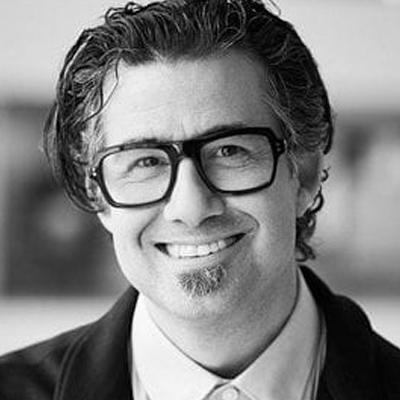
Derrick Rossi, Ph.D.
CEO, New York Stem Cell Foundation
Derrick Rossi is a serial biotech entrepreneur and stem cell scientist. His efforts developing cutting-edge technologies and novel therapeutic strategies are at the forefront of regenerative medicine and biotechnology. Since September 2022, he has been Interim CEO of NYSCF.
Dr. Rossi earned his B.Sc. and M.Sc. from University of Toronto, and his PhD from the University of Helsinki, followed by post-doctoral training at Stanford University. He was an Associate Professor at Harvard Medical School and Boston Children’s Hospital where he led an academic team working on stem cell biology and regenerative medicine, including how aging of the stem cell compartment of hematopoietic stem cells contributes to disease pathogenesis and aging-associated hematopoietic decline. Dr. Rossi was also a principal faculty member of the Harvard Stem Cell Institute from 2008 until his retirement from Harvard.
Discoveries made in Dr. Rossi’s lab have led to the formation of several biotechnology companies. Dr. Rossi co-founded Moderna, whose COVID-19 vaccine is being deployed around the world, as well as several other biotech companies, including Intellia Therapeutics, Magenta Therapeutics, Stelexis Therapeutics, and Convelo Therapeutics.
Time magazine cited Dr. Rossi’s discovery of modified-mRNA reprogramming as one of the top ten medical breakthroughs of 2010. Time magazine also named Dr. Rossi as one of the “People Who Mattered” in 2010, and as one of the 100 Most Influential People in the world (Time 100) in 2011.
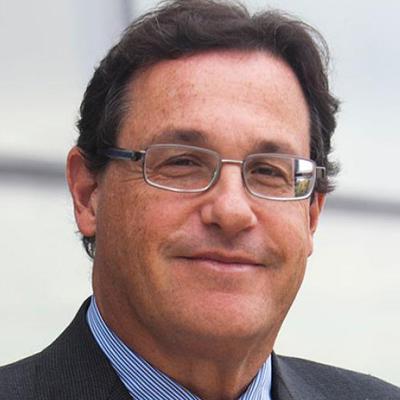
Jonathan S. Dordick, Ph.D.
Institute Professor of Chemical and Biological Engineering, Biomedical Engineering, and Biological Sciences, Rensselaer Polytechnic Institute; Co-Director, Center for Engineering and Precision Medicine
Dr. Dordick is the Institute Professor of Chemical and Biological Engineering at Rensselaer Polytechnic Institute, with joint appointments in the Departments of Biomedical Engineering and Biological Sciences, and an adjunct appointment at the Rockefeller University. He received his BA degree in biochemistry and chemistry from Brandeis University and his PhD in biochemical engineering from the Massachusetts Institute of Technology. At Rensselaer, he served as the Vice President for Research, Director of the Center for Biotechnology and Interdisciplinary Studies, and Department Chair.
Dr. Dordick's research group includes chemical engineers, bioengineers, materials scientists, biologists, chemists, microbiologists, and computational scientists all focused on gaining a quantitative understanding of biological principles and applying them to advance bioengineering and biomanufacturing. He has served the biochemical engineering community as a previous chairman of the Biotechnology Division of the American Chemical Society and as an editor of Biotechnology and Bioengineering.
Dr. Dordick has made foundational contributions to enzyme technology, microscale cell culture engineering, drug discovery and human toxicology, and biomanufacturing. He pioneered the development of enzymatic and chemoenzymatic methods for new materials synthesis; initiated the new field of molecular bioprocessing, which combines biocatalytic molecular diversity and in vitro metabolic pathway engineering with high-throughput and high-content microfluidic- and microarray-based tools to generate biologically active compounds; and greatly expanded the fundamental understanding of enzymatic catalysis in abiotic environments critical for chemical and pharmaceutical processing. Finally, he has used biomolecular discovery and engineering to address clinical translation in areas of infectious and neurological diseases, anticoagulant therapy, and highly sensitive point-of-care biosensors based on CRISPR technology.
Dr. Dordick is a member of the National Academy of Engineering and the National Academy of Inventors. He is a Fellow of the American Chemical Society, the American Association for the Advancement of Science, and the American Institute of Medical and Biological Engineers. He has received numerous awards, including the James E. Bailey Award from the Society of Biological Engineering, the Amgen Award in Biochemical and Molecular Engineering, the Food, Pharmaceutical, and Bioengineering Award of the American Institute of Chemical Engineers, the Marvin J. Johnson Award and Elmer Gaden Award, both of the American Chemical Society, the International Enzyme Engineering Award, and an National Science Foundation Presidential Young Investigator Award. He has cofounded several companies, including EnzyMed (now part of Albany Molecular Research Inc.), Solidus Biosciences, Inc., and Redpin Therapeutics.
Dr. Dordick has also served on multiple White House-sponsored panels and committees in biomanufacturing, has published more than 430 papers, and is an inventor/co-inventor on more than 50 patents and patent applications.
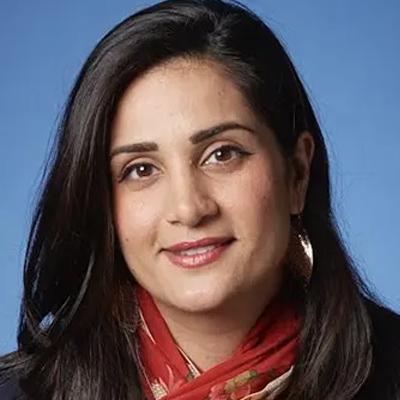
Priti Balchandani, Ph.D.
Professor, Diagnostic, Molecular, and Interventional Radiology; Neuroscience; Psychiatry, Icahn School of Medicine at Mount Sinai
Co-Director, Center for Engineering and Precision Medicine
Dr. Balchandani is Professor of Diagnostic, Molecular, and Interventional Radiology; Neuroscience; and Psychiatry at the Icahn School of Medicine at Mount Sinai. She is the Director of the Advanced Neuroimaging Research Program and Associate Director of the BioMedical Engineering and Imaging Institute.
Her research has been focused on bridging the gap between advanced electrical engineering techniques and medical imaging applications. She applies signals and systems principles to image the human brain in unprecedented detail and with new sources of signal and contrast. She develops novel magnetic resonance imaging techniques to visualize detailed anatomy as well as vasculature, neuronal fiber tracts, and metabolic characteristics to obtain a more complete understanding of the effects of disease on the brain. She has applied these methods to improve epilepsy treatment, guide skull base tumor surgery, and study the biological mechanisms underlying psychiatric illness.
Her work on overcoming some of the main limitations of operating at high magnetic fields has resulted in several innovative tools with wide applicability for human brain imaging and spectroscopy. These techniques have been applied to improve diagnosis, treatment, and surgical planning for a range of neurological diseases and disorders. She is PI on multiple National Institutes of Health-funded projects focused on using 7T imaging to help guide mechanistic understanding, diagnosis, and treatment of neurological diseases.
Dr. Balchandani received her BASc. in computer engineering at the University of Waterloo in Canada and her Ph.D. in electrical engineering at Stanford University.
